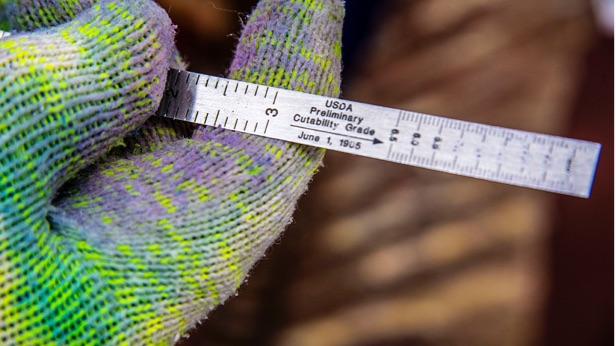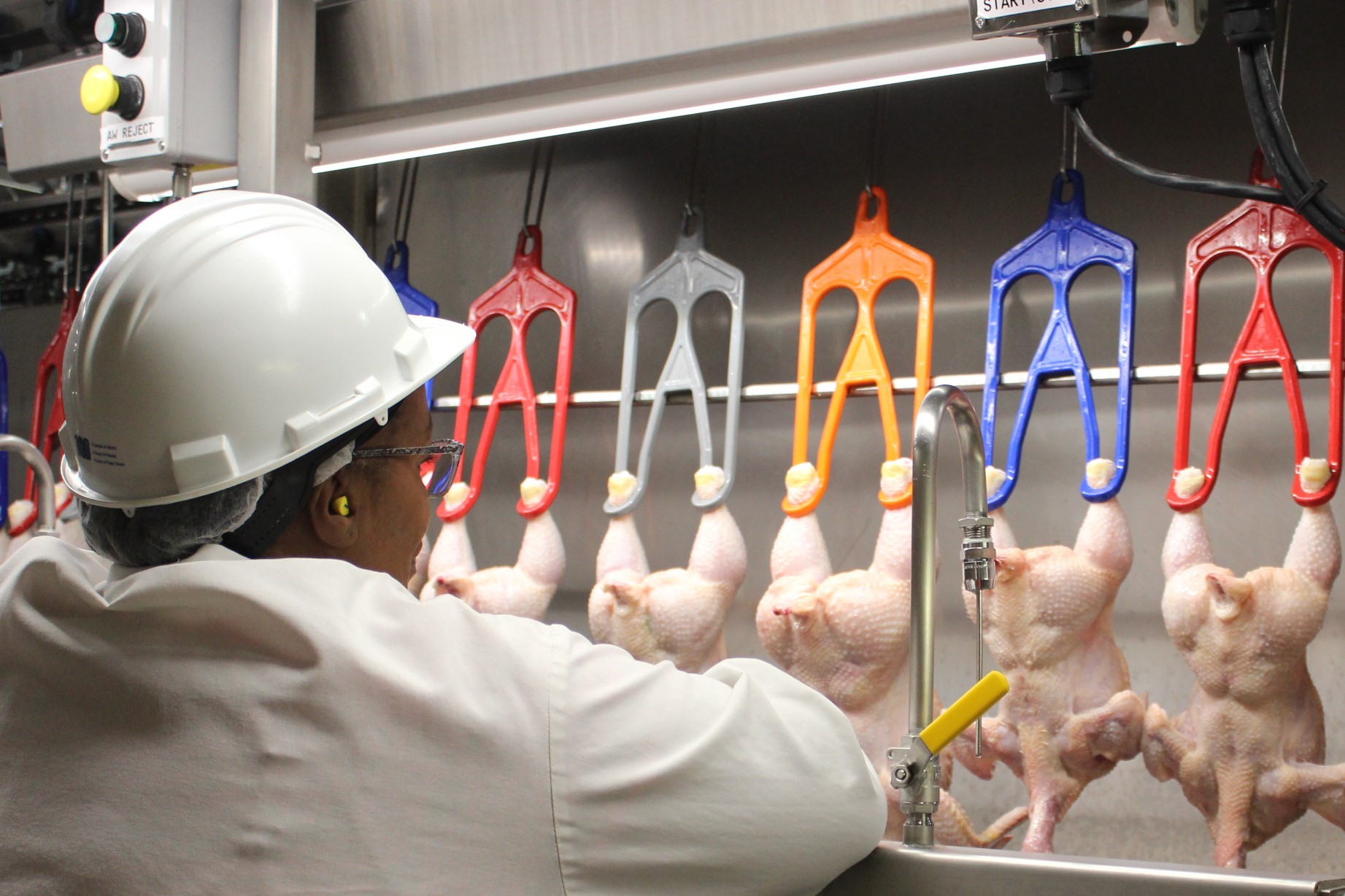
Retail Guidance
Controlling Listeria monocytogenes at Retail
In 2019, FSIS performed Focus Group Studies at retail to assess the clarity and utility of FSIS Listeria monocytogenes (Lm) guidance materials. FSIS partnered with the Food and Drug Administration (FDA) and the Centers for Disease Control and Prevention (CDC) to perform the focus group studies. The focus groups recommended that FSIS improve the consistency, clarity, and overall content of its outreach materials. In response to the focus group findings, FSIS plans to update its Retail Lm Guideline and work with its public health partners and industry groups to review its outreach materials. By updating its guideline, FSIS can help protect public health by driving adoption of food safety practices to control Lm at retail.
Resources:
Retail Beef Grinding Records
On June 20, 2016, FSIS amended its recordkeeping regulations to require that all official establishments and retail stores that grind raw beef products for sale in commerce maintain the following records:
- The establishment numbers of the establishments supplying the materials used to prepare each lot of raw ground beef product;
- All supplier lot numbers and production dates;
- The names of the supplied materials, including beef components and any materials carried over from one production lot to the next;
- The date and time each lot of raw ground beef product is produced; and
- The date and time when grinding equipment and other related food-contact surfaces are cleaned and sanitized.
Resources:
-
Grinding Log for Raw Ground Beef and Veal Products English | Spanish
- FSIS Compliance Guideline for Minimizing the Risk of Shiga Toxin-Producing Escherichia coli (STEC) in Raw Beef (including Veal) Processing Operations
- Questions and Answers on Records To Be Kept by Official Establishments and Retail Stores That Grind Raw Beef Products
- This retail grinding log template (Attachment 2 - Grinder’s Log) is designed to track the source materials used, the products produced and any microbiological independence between lots. Establishments are encouraged to use the template as a guide and include any additional information in the record to fit their unique production processes.
Beef Intended Use
FSIS does not currently sample beef intended for intact use (not for grinding or mechanical tenderizing) to test for Shiga toxin–producing E. coli (STEC). However, some retailers use beef intended for intact use (e.g., primals) to produce ground beef, which poses a food safety risk. This issue may have played a role in previous outbreaks, including a 2019 E. coli O157 outbreak associated with ground beef. In September 2020, FSIS asked the National Advisory Committee on Meat and Poultry Inspection (NACMPI) to consider whether FSIS should continue not to sample or test boxed beef primal and sub-primal products for STEC, if they are intended for intact cuts NACMPI Charge: FSIS Testing of Box Beef Primal and Sub-Primal Products for Shiga toxin-producing E. coli (STEC). FSIS seeks to improve the safety of retail-ground beef, given that retailers are commonly unaware of the producer’s intended intact use of beef products or the risks of grinding such products. In response, NACMPI provided FSIS the following recommendations to address this issue:
- Strengthen the current system.
- Conduct retail outreach and education efforts.
- Consider incorporating into the Food Code controls for STEC for non-intact products produced from beef intended for intact use.
Resources:
Chicken Liver
In recent years, numerous illness outbreaks caused by Campylobacter and Salmonella have been linked to undercooked chicken liver dishes (e.g. pâté) prepared at restaurants or in other foodservice settings. FSIS has collaborated with public health partners to develop resources to help prevent illness associated with chicken liver. These resources, including guidance for FSIS-regulated establishments, retail outlets and foodservice entities and an infographic for chefs, cooks and caterers, are available at Chicken Liver—Resources for Illness Prevention.
Shopper History Helps Solve Foodborne Outbreaks
Records of foods purchased by consumers can help foodborne outbreak investigators determine the source of foodborne outbreaks. Such “shopper history” can include paper or electronic receipts, transactions made in the context of store loyalty programs and purchases made by credit or debit cards. FSIS participates in the Shopper History Outbreak Partnership (SHOP), an interagency group of public health and food safety officials dedicated to working with industry partners to use shopper history as a tool to solve foodborne outbreaks.
Shopper history resources include:
- Leveraging Food Purchase History to Solve Foodborne Outbreaks (Association of Food and Drug Officials webpage)
- Shopper History: Best Practices for Use during Foodborne Illness Investigations (external SHOP document)
- Shopper Cards and Beyond – Success Stories of Using Consumer Purchase Data to Solve Outbreaks (external SHOP poster)
Working Together for Food Protection
The Conference for Food Protection (CFP) is a non-profit organization with representatives from the food industry, state and local health departments, government, academia and consumer organizations. The CFP identifies and addresses emerging problems associated with food safety and recommends changes to the Food Code. FSIS serves as regulatory advisors to the CFP and informs the CFP of how recommendations may be impacted by regulations for meat, poultry and egg products.
FSIS submitted the following issues for discussion at the 2021 CFP meeting:
- Creation of a Rotisserie Chicken Food Safety Committee
- Committee to Update CFP Guidance on Beef Ground at Retail
FSIS co-led a Conference for Food Protection committee from 2018-2021 to develop a guideline on the safe handling and cooking of roaster pigs. The guideline provides a history of outbreaks associated with roaster pigs. In addition, it provides recommendations for purchasing, thawing, storing, cooking, and serving roaster pigs that FSIS believes will be of benefit to retailers cooking roaster pigs or to local inspectors providing inspection services for roasting events.
Food Recovery
FSIS promotes food safety in food recovery efforts with these resources for personnel and patrons of food recovery organizations (food banks and food pantries), as well as the donating organizations, businesses or other entities.
- FSIS Guideline to Assist with the Donation of Eligible Meat & Poultry Products to Non-Profit Organizations
- Food Product Dating
- askFSIS Public Q&A: Donating (paste that into the Search box and click enter to view eight Q&As)
- askFSIS Public Q&A: Food Bank Registration
- FSIS Directive 7000.2 Experimental and Sample Products Policy
- FSIS Directive 7020.1 Verifying Donation of Misbranded and Economically Adulterated Meat and Poultry Products to Non-Profit Organizations
- FSIS Directive 8410.1 Detention and Seizure
- Federal Grant of Inspection Guide
- Form 5200-2 - Application for Federal Inspection (Meat, Poultry, Egg Products and Import Inspection)



